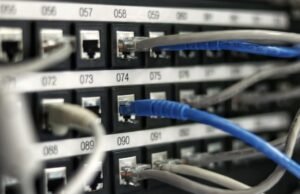AI Regulation Issues
As Artificial Intelligence (AI) technology continues to advance at a rapid pace, concerns regarding AI regulation have become more prevalent. The complexities and implications of AI systems raise important questions about accountability, ethics, and legal frameworks. In this article, we will explore some of the key issues surrounding AI regulation and its impact on society.
Key Takeaways:
- AI regulation is crucial to address concerns related to accountability and ethics.
- Legal frameworks need to be developed to ensure the responsible use of AI technology.
- The challenges of AI regulation include defining criteria, adapting laws, and addressing potential bias.
**One of the primary challenges in AI regulation is the need to establish clear criteria for determining the ethical use of AI technology**. While some applications of AI, such as autonomous vehicles, have direct safety implications, others, like AI algorithms used in hiring processes, require careful scrutiny to ensure fairness and equality. Establishing guidelines and standards that govern the deployment and operation of AI systems is essential to mitigate potential harm and protect individual rights.
**AI regulation also requires the development of legal frameworks that can keep pace with technological advancements**. Traditional laws may not adequately cover AI-specific issues, such as liability for AI-driven decisions and accidents. Governments and policymakers must work collaboratively with AI experts and industry stakeholders to update existing laws and create new ones to ensure comprehensive AI governance.
| Challenge | Description |
|---|---|
| Lack of clarity | The ambiguity surrounding AI definitions and applications impedes regulatory efforts. |
| Adapting laws | Existing legal frameworks may not adequately address novel AI-related scenarios. |
| Bias and discrimination | AI systems can perpetuate bias and discrimination if not thoroughly regulated. |
**One interesting aspect of AI regulation is the potential impact on job markets**. While AI has the potential to automate certain tasks, it can also create new job opportunities in AI development, maintenance, and oversight. It’s crucial to strike a balance between embracing AI’s benefits and ensuring job security for individuals in affected industries.
- AI regulation must consider international cooperation and standardization to address global challenges effectively.
| Country/Region | Initiative |
|---|---|
| European Union | Proposal for a comprehensive AI regulation to ensure AI systems are safe, transparent, and follow ethical guidelines. |
| United States | Development of AI principles and guidelines to encourage responsible AI innovation. |
| China | Implementation of AI regulation to address security, privacy, and ethical concerns. |
**AI regulation also involves addressing potential bias and discrimination in AI systems**. AI algorithms can inherit biases from the data on which they are trained, leading to unfair outcomes, including in areas like hiring, lending, and criminal justice. Regulatory efforts are necessary to ensure that AI systems are fair, transparent, and accountable, minimizing the risk of reinforcing societal biases.
**In conclusion, AI regulation is a vital aspect of ensuring the responsible and ethical development, deployment, and use of AI technology**. By establishing clear criteria, developing legal frameworks, addressing challenges, and fostering international cooperation, we can navigate the complexities of AI while safeguarding individual rights, minimizing bias, and harnessing the potential benefits AI has to offer.

Common Misconceptions
The Impact of AI Regulation
There are several common misconceptions surrounding AI regulation issues that often lead to confusion and misunderstanding. One of the main misconceptions is that strict AI regulation will hinder innovation. However, this is not entirely true as regulations can actually foster innovation, in addition to ensuring the responsible and ethical development and deployment of AI technology.
- AI regulations can provide clear guidelines for developers and encourage them to think critically about the potential societal impact of their creations.
- Effective regulation can increase public trust in AI systems and encourage adoption.
- Regulations can drive the development of novel solutions for privacy, security, and bias issues associated with AI.
Ethics and AI Regulation
Another misconception is that AI regulation stifles ethical considerations by imposing a one-size-fits-all approach. However, AI regulation aims to establish a baseline of ethical principles that should be followed, ensuring that AI systems are developed and used responsibly and in the best interest of humanity.
- Regulations can set accountability mechanisms to ensure individuals and organizations are responsible for the actions and consequences of AI systems.
- By defining ethical standards, regulations can prevent the unchecked development of AI systems that may negatively impact society.
- Regulations can help avoid the unethical use of AI, such as the development of deepfakes or the use of AI for surveillance without proper safeguards.
International Cooperation and AI Regulation
Many believe that AI regulation is a domestic issue and doesn’t require international cooperation. However, in an increasingly interconnected world where AI systems transcend borders, international collaboration is crucial to ensure consistent standards and accountability.
- Collaboration among countries can help establish global norms and prevent regulatory arbitrage where companies exploit differing regulations in different jurisdictions.
- Shared regulatory frameworks can enable the safe and responsible exchange of AI technologies and knowledge globally.
- International cooperation is vital for addressing challenges like data privacy, cybersecurity, and AI-enabled warfare.
The Role of AI Regulation for Small Businesses
There is a misconception that AI regulation only benefits large corporations and puts smaller businesses at a disadvantage. This is not entirely true, as effective AI regulation can provide a level playing field and create opportunities for small businesses to flourish in the AI landscape.
- Regulations can ensure fair competition by preventing the dominance of large corporations that may have greater resources for AI development.
- Smaller businesses can benefit from clear guidelines on data protection and privacy, reducing the risk of reputational and legal damages.
- Regulations can establish standards that incentivize innovation from small businesses, fostering a diverse and competitive AI ecosystem.
Overregulation and AI Research
There is a concern that excessive AI regulation can impede scientific research and hinder advancements in the field. While striking the right balance is key, it is important to understand that regulations aim to promote responsible innovation rather than hinder scientific progress.
- Regulations can be designed to focus on the application and deployment of AI, allowing scientific research and experimentation to continue.
- Consideration of ethical implications in research can actually lead to more robust and sustainable innovation.
- Regulations can foster collaboration between researchers and policy-makers, ensuring that regulations are well-informed by the cutting-edge advancements in AI.

AI Regulation Issues: Addressing Ethical Concerns
The rapid growth of artificial intelligence (AI) has led to a wide range of ethical concerns regarding its use and potential impact on society. This article explores ten key aspects related to AI regulation, each illustrated through an intriguing table.
AI Applications with Ethical Challenges
Table: A selection of AI applications and the ethical challenges they pose.
| AI Application | Ethical Challenge |
|---|---|
| Autonomous Vehicles | Decision-making in life-threatening situations. |
| Facial Recognition | Privacy invasion and potential for misuse. |
| AI in Finance | Algorithmic bias and unequal access to services. |
Public Perception of AI Regulation
Table: Public attitudes and concerns towards AI regulation.
| Public Opinion | Top Concerns |
|---|---|
| Trust in AI | Data privacy and security. |
| Job Displacement | Impact on employment and economic inequality. |
| Fairness and Bias | Algorithmic bias and discrimination. |
AI Regulation Frameworks Worldwide
Table: A comparison of AI regulation frameworks across different countries.
| Country | Regulatory Approach |
|---|---|
| United States | Industry-led self-regulation. |
| European Union | Proposed harmonized regulations with clear guidelines. |
| China | Government-led regulation emphasizing control and ethics. |
Ethics in AI Research
Table: Ethical considerations in AI research and development.
| Research Area | Key Ethical Issues |
|---|---|
| Data Collection | Consent, privacy protection, and data anonymization. |
| Algorithm Design | Fairness, transparency, and prevention of biases. |
| Autonomous Systems | Accountability, safety, and human oversight. |
AI Accountability and Liability
Table: Determining accountability and liability in AI-related incidents.
| Scenario | Liability Considerations |
|---|---|
| Autonomous car accident | Responsibility of the manufacturer, operator, or user. |
| AI Healthcare Diagnosis Error | Responsibility of the healthcare provider or AI developer. |
| Discrimination by an AI hiring system | Responsibility of the company, hiring manager, or AI developer. |
The Role of Government and Industry Cooperation
Table: Collaborative initiatives among governments and industry in AI regulation.
| Initiative | Participating Countries/Companies |
|---|---|
| Global Partnership on AI (GPAI) | Canada, France, Germany, Japan, UK, US, Microsoft, Google, and more. |
| AI Ethics Guidelines for Trustworthy AI | European Commission’s High-Level Expert Group on AI. |
| World Economic Forum Centre for the Fourth Industrial Revolution | Public and private sector collaboration. |
Implications of AI Regulation on Innovation
Table: Balancing AI regulation and innovation.
| Regulatory Measures | Impact on Innovation |
|---|---|
| Data Protection Regulations | Potential hindrance due to increased compliance requirements. |
| Transparency and Explainability Standards | Promotion of trust and responsible deployment of AI. |
| Liability Frameworks | Clarification and shared responsibility. |
Emerging Technologies and AI Regulation
Table: Regulating AI-empowered emerging technologies.
| Emerging Technology | Adequate Regulation |
|---|---|
| AI in Cybersecurity | Stricter regulations for cybersecurity standards. |
| AI in Biomedical Research | Ensuring ethical use and protecting sensitive data. |
| AI in Education | Guidelines for fair and unbiased AI-assisted learning. |
AI Regulation Challenges and Future Outlook
Table: Key challenges faced in AI regulation and predictions for the future.
| Challenges | Future Outlook |
|---|---|
| International Coordination | Increased collaboration for global regulatory alignment. |
| Rapid Technological Advancement | Continual adjustments to regulations to keep pace. |
| Unforeseen Ethical Dilemmas | Establishment of agile regulatory frameworks. |
In conclusion, the rise of AI has sparked a pressing need for effective regulation to mitigate ethical concerns. The tables presented throughout this article shed light on various aspects of AI regulation, including ethical challenges, public opinions, regulatory frameworks, research considerations, accountability, and collaborative initiatives. Additionally, the tables address the delicate balance between regulation and innovation, the regulation of emerging AI-empowered technologies, and the challenges that lie ahead. By proactively addressing these issues, society can harness the true potential of AI while ensuring it aligns with our ethical values and serves the greater good.
Frequently Asked Questions
What is AI regulation?
AI regulation refers to the development and implementation of rules, policies, and laws to govern the use and deployment of artificial intelligence technologies. It aims to address the ethical, legal, and social implications of AI and ensure its responsible and safe use.
Why is AI regulation important?
AI regulation is important to prevent potential risks and negative consequences associated with the uncontrolled use of AI. It helps protect individual privacy, prevent discriminatory algorithms, ensure fairness and transparency in AI systems, and foster trust in the technology.
What are the main challenges in AI regulation?
The main challenges in AI regulation include defining clear legal frameworks, balancing innovation with safety, addressing bias and discrimination, ensuring accountability and liability, keeping pace with rapid technological advancements, and fostering international cooperation.
Who is responsible for AI regulation?
AI regulation is typically the responsibility of government bodies, regulatory agencies, and policymakers. They collaborate with AI developers, industry experts, ethicists, and public stakeholders to establish appropriate regulations and standards.
What are some key areas of AI regulation?
Key areas of AI regulation include data protection and privacy, algorithmic transparency and explainability, accountability frameworks, bias and fairness considerations, safety and reliability, intellectual property rights, and cross-border regulations for AI technologies.
Are there international efforts for AI regulation?
Yes, several international efforts are underway to promote global cooperation for AI regulation. Organizations such as the European Union, the OECD, and the World Economic Forum are actively involved in shaping AI regulations at the international level and facilitating discussions to ensure harmonized approaches.
What are the benefits of AI regulation?
The benefits of AI regulation include safeguarding individual rights and privacy, reducing potential biases and discriminatory practices, ensuring the accountability of AI systems, fostering innovation with responsible practices, and building public trust in AI technologies.
What are the concerns surrounding AI regulation?
Some concerns surrounding AI regulation include the potential stifling of innovation due to excessive regulations, the difficulty of creating universally applicable rules for AI due to its wide range of applications, and the risk of jurisdictional conflicts between countries with varying regulatory frameworks.
How can AI regulation keep up with rapidly advancing technology?
AI regulation needs to employ adaptable and flexible frameworks to keep up with the rapidly advancing technology. Regular monitoring, continuous collaboration with experts, creating regulatory sandboxes for testing, and proactive engagement with the AI community can help address the challenges posed by emerging AI technologies.
What can individuals and organizations do to contribute to AI regulation?
Individuals and organizations can contribute to AI regulation by actively participating in public consultations, sharing expert knowledge and insights, advocating for responsible AI practices, supporting research and development of ethical AI, and engaging in collaborations with regulators and policymakers.




